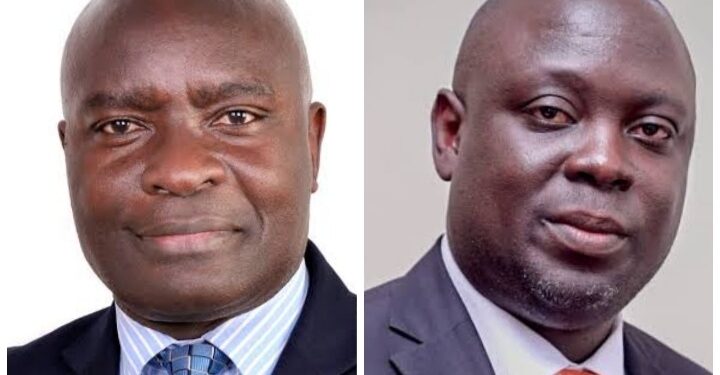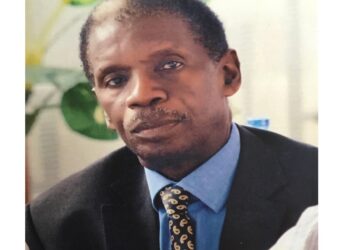Let me use this opportunity to welcome back the President of the Republic of Uganda, H.E Gen. (Rtd) Yoweri Kaguta Museveni, his visiting counterpart from Central African Republic (C.A.R). H.E Faustin-Archange Touadéra, other leaders and all Ugandans from celebrating the 62nd Independence Day in Busia district. Appreciation goes to the National Organising Committee (N.O.C), the media for covering the event, respective service providers, and the security agencies for ensuring the safety of everyone.
One of the key gains of Independence was the right of Ugandans to self-govern and to choose their leaders. In the post-Independence era came the 1986 Liberation which expanded, extended and entrenched the right of independent Ugandans to choose their leaders, and to seek leadership positions within the standing Constitutional framework. Among the most outstanding achievements of the NRM Government is that right of Ugandans to choose leaders and exercise their democratic mandate as part of the process to rectify the damage done by the colonialists that had oppressed us and taken away our civil rights.
Subsequent post-independence government fared no better, which explains why they couldn’t last long and plunged Uganda into turmoil, marked by unceremonious and bloody transitions until 1996 when the first peaceful transition was witnessed with the election of President Museveni for the first time. Since then, we have had five other peaceful transitions from one term of power to another with President Museveni at the helm. The stability enjoyed as a country is because of the right to choose from the pool of candidates under the various platforms like political parties which front them and whose card they hold.
Heading into yet another prospective peaceful handover with general elections due early 2026, as a rule, the purpose is to entrench the culture of democracy and peaceful transition. Contenders are expected to show interest at different levels of leadership and representation, right from the LC 1 level up to the Presidency. From among the many, the free-independent, liberated, immunised, civilised and empowered Uganda-will retain the final say as per the fundamental Constitutional provision under Article 1 (1) which stipulates: “All power belongs to the people who shall exercise their sovereignty in accordance with this Constitution.” Clause 4 adds: “The people shall express their will and consent on who shall govern them and how they should be governed, through regular, free and fair elections of their representatives or through referenda.”
It’s on that note that I address with much concern a trend whereby certain incumbents are acting in a way that threatens this Constitutional order which Ugandans are now accustomed. These leaders, after benefitting from the democratic space fought for and sweated for by gallant Ugandans, are busy blocking the way for other leaders from emerging on the scene. Uganda is gifted with a lot of leadership potential from among the healthy population. And, indeed, at the right time and in the right conditions, these can provide leadership.
However, we shall never know the potential of these newcomers unless they are free to compete and prove themselves if they can win the popular vote. I will not name individual constituencies because my job is not to pinpoint individuals (in any case, in the hot spot areas this is public knowledge) but to point out the practice. Some incumbents are behaving so insecure and protective of their constituencies as though they were born in them or that they moment they were elected into those positions, it was for indefinite terms. In doing so, they are pulling out all the dirty tricks in their rule book to frustrate and finish off any contenders they see, including those they imagine to be interested in the same seats and their associates. Nothing is being left unemployed in this dirty game including; mudslinging, witchhunting them in their current workplaces to make them lose their jobs and, perhaps, lack campaign resources when the time comes; seeking the services of sorcerers to bewitch them, and even plotting to eliminate them physically in case they don’t give up their ambitions. The most affected category are civil servants intending to go into elelectorctoral politics. They are reported to their superiors unfairly to frustrate and intukimidate them.
Then, of course, there is the trick of throwing money and other favours at them so as to buy them out of the race. It’s my hope that this paranoia doesn’t translate into full-blown violence, in which case the strong arm of the law will come in to arbitrate.
Why are these particular incumbents so unsure of themselves? If the President, the chief liberator and guarantor of the freedoms of Ugandans, is himself subject to competition, what makes anyone else feel that they must not be touched? Many of those he started with in his initial and previous cabinets have since left the political scene but because he is so hardworking, Ugandans have constantly retained him. For nonperformers, if one finds himself or herself unsure of the election, then it automatically goes to show that that incumbent hasn’t used his or her time well to serve the people. That alone should bring to question whether they deserve to be reconsidered for election. With less than a year to party primaries, those that have not done much for their voters can only prepare for a humble exit or pray for a miracle, but dirty tricks to intimidate, harass and witchhunt competitors will only make it more complicated for them to retain their seats if voters decide to use the sympathy card in favour of the new entrants.
At the same time, there are new contenders equally guilty of playing dirty, applying the same tricks to mudsling and intimidate incumbents, and engaging in early campaigns while the incumbents are away on duty. Whether it’s an incumbent or a competitor, the principle remains one; that anyone (as long he or she is qualified) is free to contest for any position to give the voters more options. Those that cannot stand the heat of competition should concede that they are unable to convince Ugandans to vote them and, accordingly, find something else to do!
The author is the Special Assistant to H.E the President of Uganda-Press and Mobilisation
Contact: faruk.kirunda@statehouse.go.ug
0776980486/0783990861
Do you have a story in your community or an opinion to share with us: Email us at editorial@watchdoguganda.com













